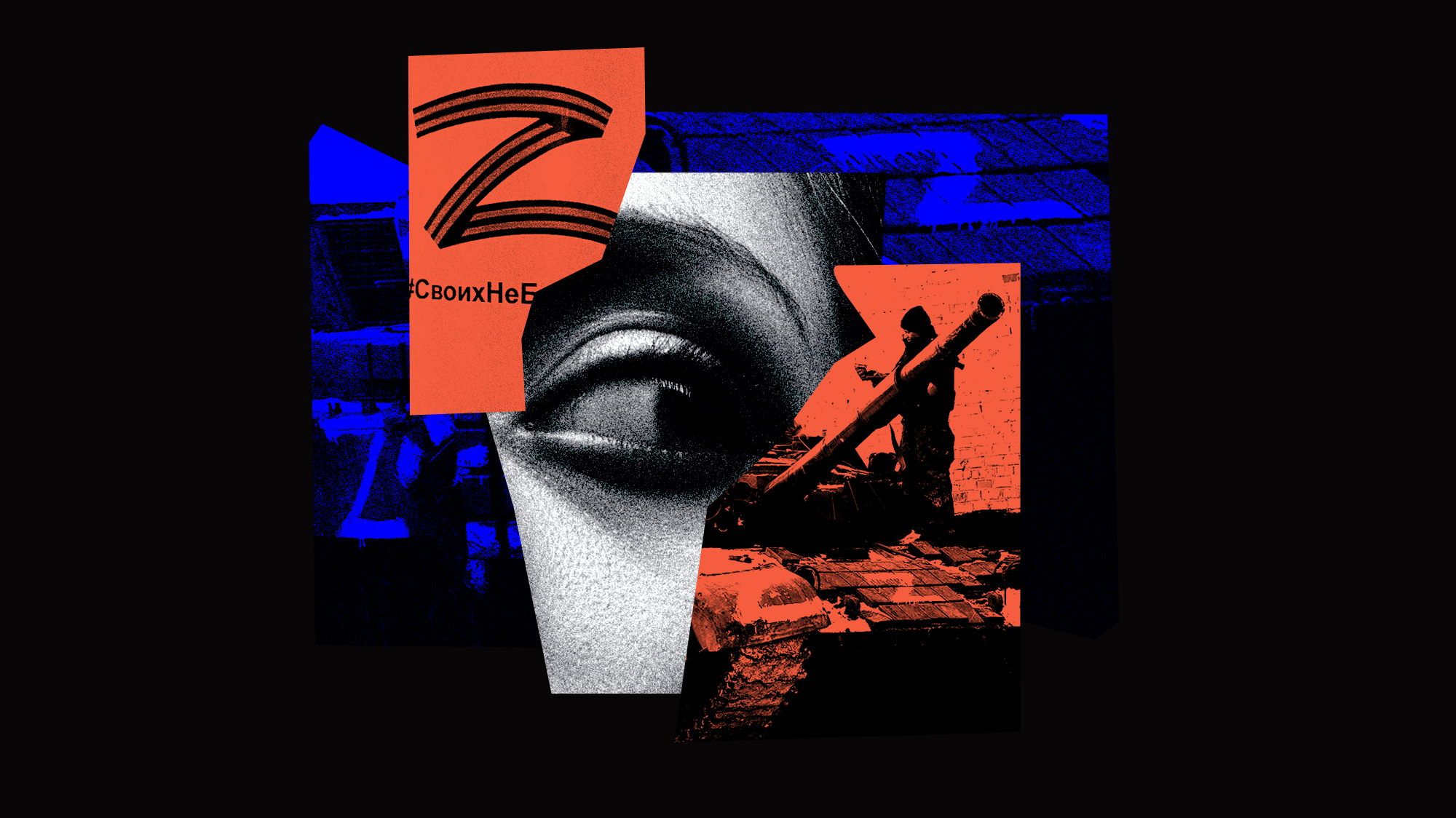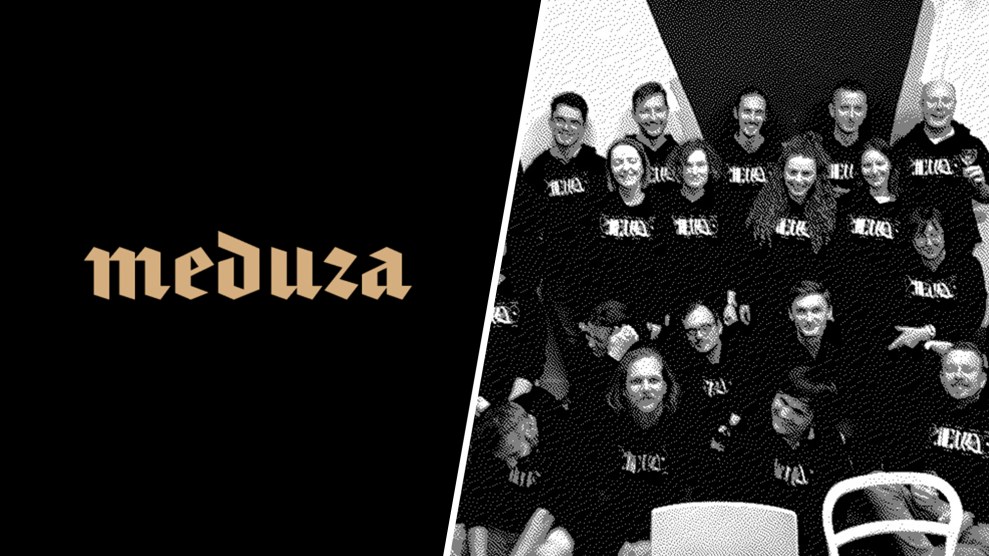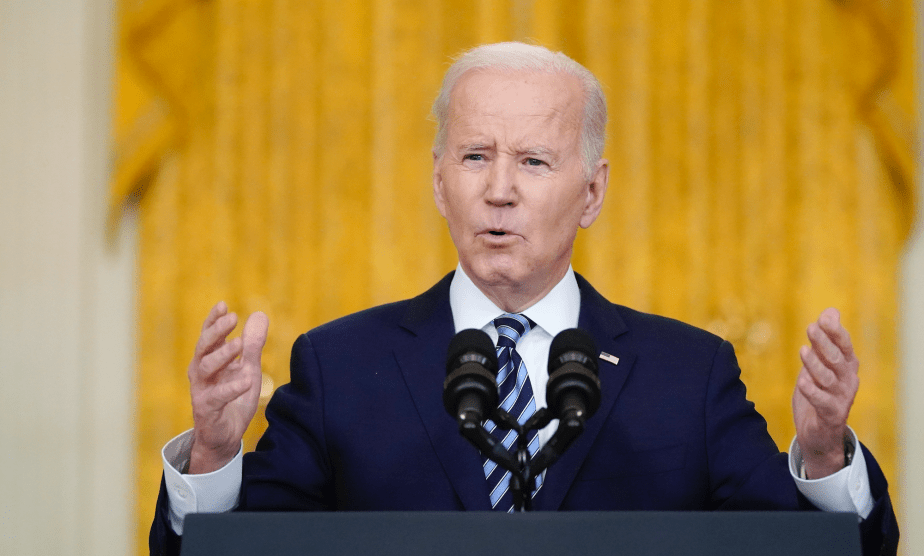Editor’s note: This essay is anonymous in order to protect the writer from potential reprisals.
Things are quiet here in St. Petersburg. Weirdly, horrendously, quiet. Like there isn’t a war on at all.
The city is home to military and navy academies. Home to the massive state-owned energy corporation Gazprom, home to the Constitutional Court. It’s the old imperial capital and Putin’s hometown. It is quite capable of patriotic jingoism. But things are quiet.
On February 24, Russian military forces began shelling Ukrainian cities. The following week, billboards appeared around the city with the letter “Z” and the phrase “We do not forsake our own!” This letter “Z” then began to appear on riot police helmets and Rosgvardia cars. I’ve seen metro workers wear it tacked to their uniforms. Asked whether they are required to do so, some look up defiantly and say, “Unfortunately, yes.” I rarely, however, see this letter “Z” on private cars around town.
Why Z?
On February 24, when Russian armored vehicles rolled into Ukraine, they were marked with large white letters, either Z or V: marks to distinguish forces and avoid friendly fire. The most reasonable explanation for these markings is that Z stands for Zapad or West, V for Vostok, or the East, which signifies the two directions from which the vehicles entered Ukraine. But why were they written in the Latin alphabet? And why has the Z become the official symbol of this “special military operation” that may not legally be called a war? The Russian Ministry of Defense eschews easy answers. On March 2, it explained to its Instagram followers that “Z signifies Za Pobedu!” On March 15, the governor of St. Petersburg was formally briefed with this same explanation.
Official explanations are asinine. The symbols are empty, disconnected from any reasonable semantic content. But this irrationality is not without reason. The helmets of the riot cops beating Russian anti-war protesters bear the same senseless mark as that which adorns armored vehicles decimating Ukrainian cities and towns. The Russian state has marked this violence as two fronts of one war.
This is a civil war, for more reasons than one. And here in St. Petersburg, it is supported with silence. There is little public enthusiasm for this conflict, although there’s also not much condemnation. Many people are appalled by what the Russian army has done to Ukrainian villages cities and towns but are afraid to speak out. Many are incensed to learn that drafted conscripts were sent to the front, but see no reason to protest. Many prefer not to think much about the situation at all.
Two incredible events from the media sphere.
On March 14, an editor of Channel 1 Television—a woman named Marina Ovsyannikova—ran into the frame of the 9 p.m. news with a hand-painted sign: “Stop the war! You’re being lied to here!” She was apprehended and fined. The new law under which she could face years in prison for “calling to not employ Russian troops to protect Russia’s interests” is yet to be ratified. But what makes her act particularly significant is its venue: This state TV program is impossible to ignore. Even Channel 1 itself had to admit that they noticed. Interviewed on March 20, the head of its news desk explained that Ovsyannikova had been paid by the British Embassy to betray her country and her colleagues. He compared her to Judas Iscariot.
On March 14, Morgenshtern released a new video clip, titled “12.” Named Spotify’s top artist in Russia in 2021, Morgenshtern is the self-proclaimed bad boy of Russian pop-music: expensive cars, diamonds, irreverent mockery. In “12,” the mood is dark and the violence is serious. The video ends with a voice message from his friend’s mother, calling from Ukraine: “Our roof was almost blown off this morning. We thought about running, but then we came back. We’re here now. We’ve set up a bomb shelter in the cellar so baby, don’t worry.” The video got 5 million views in the first 24 hours. A week later, it also had 50,000 comments—most of them written in Russian, many written by Ukrainians.
I’m at a bar with my colleagues, talking about the war. They’re young, overeducated, and underemployed, against the war and politically active. They go to protests, they have been arrested and beaten. As they see it, the future looks dismal. They’d like to leave Russia, but now that seems next to impossible. If they stay here and work, won’t they be complicit? And if they don’t work—how will they feed themselves?
We put up “No War” stickers on outdoor surfaces and dive bar bathroom stalls. But the glue is weak and the stickers are only paper, printed by some guy moonlighting at a copy shop. They don’t stay up very long.
Walking back to the metro, one of their friends matches pace with me and says, “I’m from Kharkiv.” Located in the northeastern part of Ukraine, Kharkiv is the country’s second-largest city, is predominantly Russian-speaking, and has been under massive assault by the Russian armed forces.
“I’m afraid to ask,” I say. “How is your family?”
“Terrible,” she replies.
I say, “I’m so sorry.”
What, indeed, does one say?
Countless people in Russia have had such conversations by now, three weeks into this civil war. When I say civil war, I do not mean that Ukraine and Russia should be thought of as one country. I mean only that people here have friends and family there. And vice versa. Nations and languages are born and grow, they mate and reproduce, they fight and are silent and die. They are social entities, no less than individual persons. If this civil war was a conflict of two individuals, it might look something like this: A man tracks his ex-wife down decades after their divorce. He poisons her dog, kidnaps her children, sets fire to her house. He is apprehended and asked what the hell he was thinking. The man explains, “You should have seen what that slut posted on Facebook the other week.”
Insane? Yes. But so is this whole situation.
People say, “Thank God, my grandmother died and did not live to see this.”
They say, “Thank God Covid took so many old people before this war started.”
In trying to make sense of this situation that totters on civil war, on genocide, on Armageddon, Western news analysts have reasonably tried to understand what the Russians are thinking. Why don’t Russians rebel?
Reader, they don’t rebel because they have been given a way to shift the optics of their consciences. The state’s media narratives allow them to stay apolitical, to deny complicity. Many millions of people in Russia have friends and relatives in Ukraine. When these friends and relatives call to tell them that they’re being bombed, some of these people refuse to believe them. “Russian Television means more to them than their daughter or sister,” writes the exiled Russophone journal Meduza. It sounds wild, but I have heard this same story from several of my friends: “Dad doesn’t believe his Ukrainian friends. And when he hangs up, he yells at his wife, ‘No, no no! No, it’s not true!’”
I have an acquaintance here, a woman in her 30s. We have friends in common and sometimes we find ourselves running small errands together. She comes over to drop something off for a friend, stays for tea. We sit around joking about Biden’s astute gaffes: how “Putin will never win the hearts and minds of the Iranian people,” how Putin has decided to “invade Russia.” The conversation moves to the Ukrainian president. “Then there’s Zelenskyy,” she says. “How could a drug addict clown have become the hero of all times and all peoples?” There’s context here. Her friends in Kyiv all used to openly hate Zelenskyy, she says, but then they all went nuts over there and suddenly they’re all for him.
“You have friends in Kyiv?” I ask. “Do they call you?”
“They used to,” she replies. “But it’s become impossible to talk to them. Now they break out screaming: ‘This all because of you! You Russians!’ And I’m like, ‘Hello? What exactly have I got to do with any of it?’”
“They called to tell you they were being bombed?”
“Well, yeah.”
“Wow. How’d you react to that?”
“Found it surprising, of course. We weren’t hearing about that here.”
“What do you do with the information?”
“Nothing.” She shrugs. “What could have I done with it?” She doesn’t attend anti-war protests. She’s signed up for the Telegram channel where the places and times of the protests are posted, but only to better navigate through the city, so she’s not stuck sitting in traffic while the riot-cop cosmonauts close everything off. She flips through the channel and laughs: “I can’t fucking believe what these people write in their chats. Some of them have said enough for a 15-year sentence already. And this is all in the Telegram app! You idiots, it’s a Russian app, it’s based in Russia!”
And she’s right. Telegram is closely monitored. People have incurred criminal charges for their posts on Telegram.
She doesn’t like Putin. She thinks that his new laws are insane, that his actions in international politics have brought us to the brink of economic collapse. She’s wanted to get the hell out of this country ever since they started talking about creating their own “sovereign internet.” A couple of years ago she had some pretty definite plans to try to move to Spain. But then came the Covid lockdowns and now this. All those life plans are ruined.
It has become impossible not to notice the sanctions. Prices have gone up 40 to 140 percent, popular shops have closed: Uniqlo, IKEA, H&M. Medications are running low, and there are long lines outside discount pharmacies. Quality knee socks and imported detergent are going or gone. But there is not yet a shortage of food, no “empty shelves” in this sense. And to many people here, these economic concerns are everyday problems to grumble about along the lines of, “What will the bastards think of next?” The bastards might be NATO or sanctioning Western states, they might be international corporations or local re-sellers. But they’re not clearly tied to the destructive war Russia has waged on Ukraine.
A friend of mine ran into one of her neighbors a few days ago, out walking her dog in the morning. The neighbor has a dog too, and they’re on good terms like people walking their dogs in the same neighborhood typically are. Does she still have her job? my friend asks her neighbor. Yeah, she works in grocery logistics, and they’ve been swamped with work. The prices keep changing daily, wholesalers buying up grain for some reason that she cannot fathom, creating price hikes through market panic. Well, I don’t know, my friend says, my last hope is that someone might off Putin by Easter.
“Putin?” The neighbor looks at her with unfeigned confusion. “What’s he got to do with any of this?
The ruble is our currency and Putin is our president. Putin is present everywhere as an everyday fact of life.
Among the Putin-unfriendly public, rumors are circulating that he may be severely ill. He might be on steroid therapy; he might have cancer.
The state is quick to quash any such ruminations. A handout given to elementary students last week teaches them how to deal with fake news. “Look for corroborating evidence.” “Use your commonsense and listen to your inner voice.” A news story, for example, claims that President Putin has suddenly died. “That’s impossible!” prompts the handout.
Still, in his recent videos, Putin looks unwell. He’s sitting in a yellow-toned cubicle, leaning heavily on his desk before a video call with the main state TV channels, his face puffy, his expression excited and angry, talking about the fifth column: “national traitors, those who earn money here, with us, but live there, and ‘live’ not even in the geographical sense of the word, but in their thoughts, in their slave mentality.” Mentally, the slavish fifth column is eating oysters in its Miami mansion, coveting foreign goods and gender freedoms.
On the street, people don’t talk much about Putin. They’re more likely to talk about their daily problems, about prices rising and stores closing, about looking for work.
What if Putin should suddenly disappear by some deux ex machina? It’s hard to imagine a transfer of power. There’s no internal power struggle that is apparent to us mere mortals. No obvious contenders for the throne. No logical mechanism to hold elections. Before the war started, some people speculated that Putin might not exist anymore: that he’s a computer-generated image or a stand-in double, that he doesn’t decide anything in the country. But his recent actions have been so inexplicable that this has ceased to seem plausible. It’s easier to believe that one person has lost his mind than that an entire deep state of them has.
Several retired army officers have told me that they’re aghast at Russia’s military operation: The aims are unclear, the logistics are poor, the commanders are idiots. But they also add, sadly, that should NATO invade, they’ll stand up to defend their country. They are good men. They love children and animals, take care of their infirm relatives and their elderly neighbors. What other choice do they have?
“We are in a very complicated situation,” my boss tells us in a meeting. “We are doing everything possible to ensure that no one is subject to harassment for his political views.” This is why we do not talk about politics. Politics is intimate, contentious, and private. Something to do when you’re alone, and only if you’re over 18. “It is unacceptable to drag children into politics,” the state has told us for several years, and lest we miss the point it supports this admonition with criminal sentences. Last year, the university student journal DOXA posted a video online in support of peaceful street protests. Its editors are still under house arrest, awaiting trial. They are charged with “involving minors in criminal or antisocial acts.”
Politics is sinful and dangerous, even dirty. But making preschool kids stand in formation of the letter “Z” is not about politics. “Z” is senseless, and therefore apolitical. “We don’t forsake our own!”
A moral claim. Of course, we don’t. Who would argue with that?
Today is March 21. Russia’s war in Ukraine is in its fourth week. Russian newspapers are blaming Ukrainian “bandits” for the destruction of Mariupol, Russian courts are finding citizens guilty of defaming the letter Z—by spitting at it, for instance.
Many people around me are still convinced that stories and images of Russia’s destructive actions are fake. I was with a friend last night when she got a call from a colleague. Their conversation started with the quotidian—like sharing strategies for getting goods that are quickly disappearing—but then took a political turn. “You’ve been brainwashed!” The colleague yelled at my friend, laughing. “You believe that NATO propaganda? It’s filmed in Hollywood.” The colleague is focused on everyday problems, sure that everything will somehow sort itself out in the end. It always does, doesn’t it?
But others are horrified. A friend came over for breakfast this morning. She’s in her early 60s, retired from a midlevel clerical job in the St. Petersburg international port. Her work history left her well informed about Russia’s reliance on imports. But this is not what worries her most.
“I’m old,” she says. “I’ve lived a good life, I’ve seen everything. But I have grandchildren.”
“Are you afraid that they’ll have nothing eat?”
“I’m afraid of what they will grow up to be. What will this state plant in their heads?”
She’s crying as she says this. She’s been crying for weeks.
“What should I tell my grandson about the letter Z, when he asks?” she says.
Her grandson is 7.
I received a letter today from a friend, saying that he’s been drafted into the army. I last saw him three weeks ago. He was leaving St. Petersburg to return to Odessa, although he is an apolitical pacifist. He wore a yellow Jewish star sewn onto his blue jacket. Flights over Europe were already impossible, but he left overland via Finland.
He went back to defend his city. My friends and I here, we pray for his safety. As he was leaving, he told us that he’d pray for us too.
















